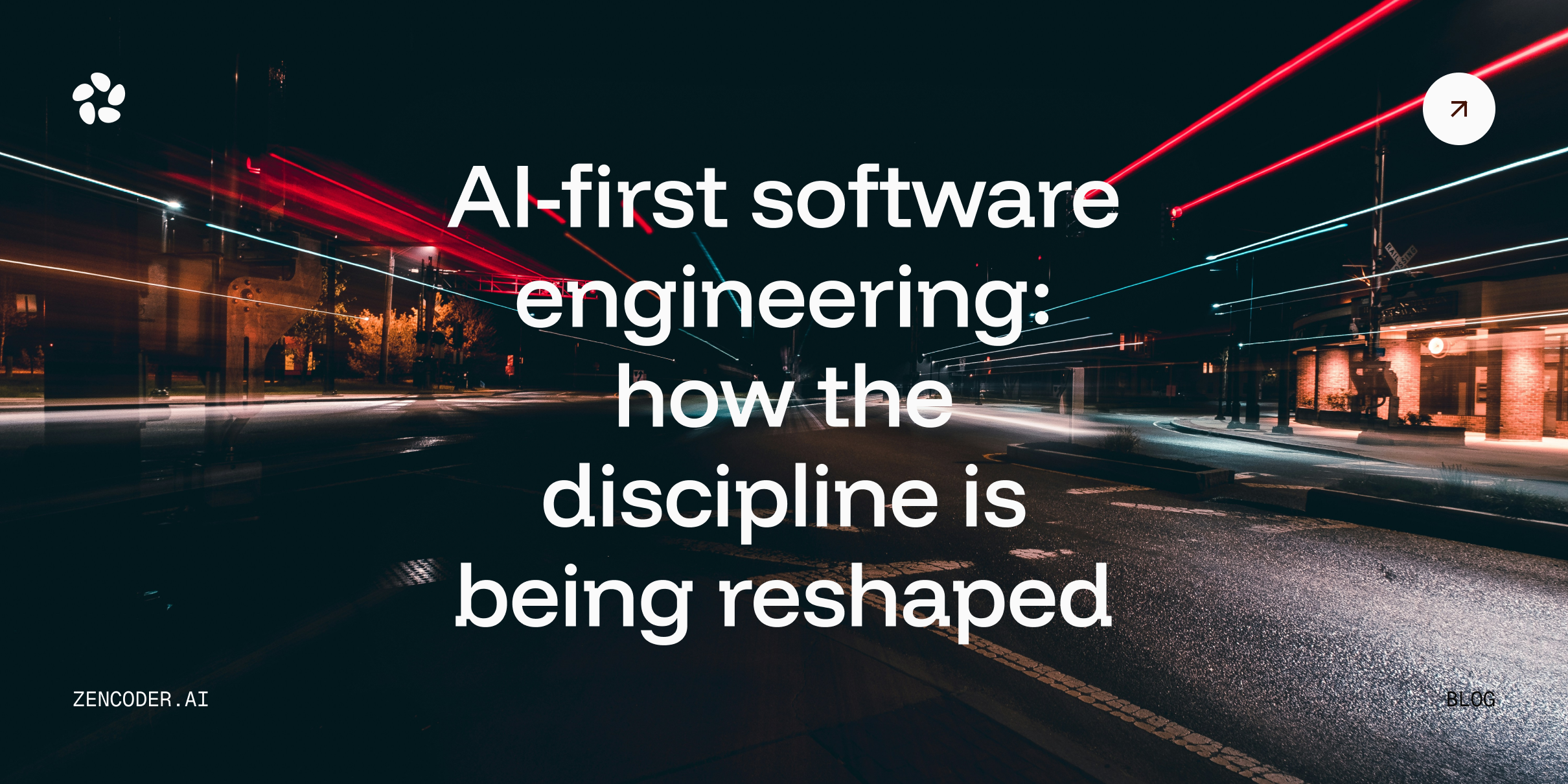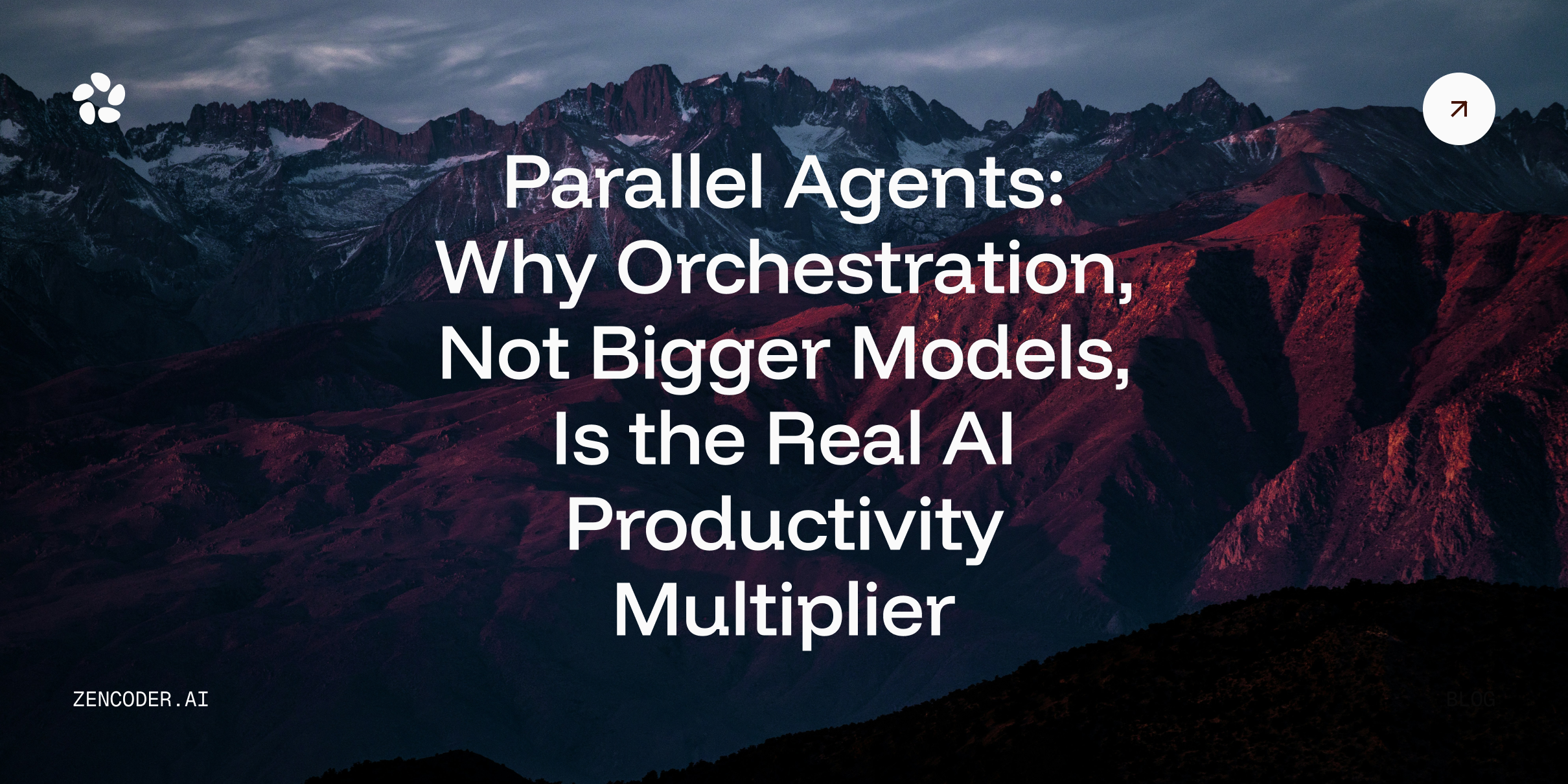Maintaining and refactoring large codebases has always been a challenging task. The complexity of modern systems, combined with the need for continuous updates, often makes this process time-consuming and error-prone. But what if there was a way to simplify it? Enter AI-powered code refactoring: a game-changing approach that leverages artificial intelligence to streamline code maintenance, improve performance, and reduce technical debt.
In this article, we’ll explore how AI can transform the way we approach code refactoring. From understanding the challenges of manual refactoring to leveraging AI tools for automated suggestions, this guide will provide you with actionable insights to optimize your codebase.
Here’s what you’ll read here:
- Introduction to AI-Powered Code Refactoring
- The Importance of Codebase Maintenance
- Challenges of Manual Refactoring
- How AI Enhances Code Refactoring
- AI-Powered Tools for Refactoring
- AI-Driven Code Transformation
- Error Detection and Prevention with AI
- The Future of AI in Code Refactoring
Introduction to AI-Powered Code Refactoring
Refactoring is a critical aspect of software development that ensures the long-term health and maintainability of a codebase. However, it is often perceived as a challenging and time-consuming task. Developers frequently face the daunting responsibility of updating outdated systems, untangling complex dependencies, and ensuring that the software continues to function as intended. These tasks can feel overwhelming, akin to navigating a labyrinth of interconnected components.
This is where AI-powered code refactoring becomes a game-changer. By leveraging the capabilities of artificial intelligence, developers can automate many of the repetitive and tedious aspects of refactoring. This not only accelerates the process but also enhances its accuracy and reduces the stress associated with it. Whether you are working with legacy systems that require modernization or optimizing a contemporary codebase for better performance, AI provides a smarter, more efficient way to address the challenges of software maintenance. It empowers developers to focus on higher-value tasks while ensuring that the code remains robust and adaptable.
The Importance of Codebase Maintenance
Maintaining a codebase is not just a routine task: it is the cornerstone of any successful software project. A well-maintained codebase ensures that the software remains stable, secure, and adaptable to evolving technological landscapes. It allows the software to grow and improve over time, accommodating new features and advancements without compromising its core functionality.
However, codebase maintenance goes beyond simply fixing bugs or adding new features. It involves keeping the code organized, efficient, and prepared for future development. One of the most significant challenges in this process is managing technical debt. Over time, quick fixes, rushed updates, and temporary solutions can accumulate, creating a tangled web of dependencies that hinder development and increase the likelihood of errors.
AI-powered tools offer a solution to this problem by automating routine maintenance tasks and identifying inefficiencies within the codebase. These tools enable developers to proactively address issues, saving time and ensuring that the software remains scalable and robust. For instance, AI can analyze the codebase to detect outdated constructs, pinpoint performance bottlenecks, and highlight areas that require optimization. This proactive approach not only streamlines the maintenance process but also ensures that the software is well-prepared to meet future demands.
Challenges of Manual Refactoring
Refactoring a large and complex codebase manually is an arduous and intricate process. Modern software systems often consist of multiple layers of interdependencies, making it challenging to navigate and modify the code without introducing unintended consequences. Even a seemingly minor change can have far-reaching ripple effects, potentially introducing subtle bugs that compromise the system’s overall integrity.
Legacy systems present an additional layer of complexity. These systems are often poorly documented, leaving developers to decipher the original intent behind certain code structures. Without a clear understanding of the system’s architecture, even small modifications can lead to unexpected issues, making the refactoring process even more daunting.
Another significant challenge is balancing the need for refactoring with the demands of ongoing development. Developers often face a difficult trade-off: should they pause feature development to optimize the code, or continue pushing forward with a less-than-ideal codebase? This decision becomes even more challenging when working under tight deadlines, where time constraints force teams to prioritize immediate deliverables over long-term code quality.
AI-powered tools address these challenges by automating the detection of inefficiencies and providing actionable suggestions for improvement. These tools help developers navigate complex systems with greater confidence, ensuring that their refactoring efforts are both efficient and effective. By reducing the manual effort required and minimizing the risk of errors, AI enables teams to maintain a high-quality codebase without sacrificing productivity.
How AI Enhances Code Refactoring
Identifying Inefficient Code
One of the most labor-intensive aspects of refactoring is identifying inefficient or problematic code. This task requires a deep understanding of the system’s architecture and a meticulous approach to analyzing the codebase for performance bottlenecks and outdated constructs. AI significantly simplifies this process by automating the analysis of the codebase and highlighting areas that require attention.
For example, machine learning algorithms can scan the code to detect resource-heavy routines, outdated constructs, and other inefficiencies that might be overlooked during manual reviews. By automating this process, AI not only saves valuable time but also ensures a higher level of accuracy in identifying areas for improvement. This allows developers to focus their efforts on implementing solutions rather than spending excessive time on analysis.
Balancing Refactoring and Development
Another critical challenge in refactoring is finding the right balance between improving the codebase and continuing ongoing development. AI-powered tools help developers strike this balance by analyzing the codebase and prioritizing areas that pose the most significant risks or offer the greatest potential for improvement.
For instance, instead of refactoring an entire module, AI can identify specific functions or components that are causing performance issues. This targeted, incremental approach allows developers to address critical areas without disrupting the overall development momentum. By focusing on high-impact changes, teams can improve code quality over time while still meeting project deadlines and delivering new features.
Ensuring Code Quality Across Teams
Collaboration is essential for maintaining a high-quality codebase, especially in large development teams. AI-powered tools facilitate collaboration by providing real-time feedback and cross-referencing code against established best practices. This ensures consistency across the team and helps identify potential issues early in the development process.
By integrating AI insights with traditional peer reviews, teams can create a collaborative environment where everyone contributes to a cleaner, more maintainable codebase. AI tools also help enforce coding standards, ensuring that all team members adhere to the same guidelines and practices. This not only improves the overall quality of the code but also reduces the likelihood of errors and inconsistencies.
AI-Powered Tools for Refactoring
AI-powered tools have revolutionized the way we approach code refactoring, offering intelligent suggestions, automation, and insights that simplify the process. These tools are designed to address specific challenges in software development, from detecting inefficiencies to improving code quality and maintainability. Below is an overview of some of the most popular tools, their features, and how they can be used effectively.
GitHub Copilot
GitHub Copilot is a powerful AI assistant for code generation and interactive pair programming. It uses OpenAI’s Codex model to suggest entire lines or blocks of code based on the context of your project. This tool is particularly useful for developers looking to speed up coding tasks, explore new approaches, or reduce repetitive work. Copilot integrates seamlessly with popular IDEs like Visual Studio Code, making it a versatile choice for developers across various programming languages.Sourcery
Sourcery focuses on detecting code smells and providing targeted refactoring suggestions. It analyzes your codebase in real-time and offers actionable recommendations to improve readability, performance, and maintainability. Sourcery is especially valuable for teams aiming to standardize their code and reduce technical debt. Its ability to refactor Python code automatically makes it a favorite among Python developers.
Codiga
Codiga is designed to enhance code quality and maintainability by identifying inefficiencies and suggesting improvements. It supports multiple programming languages and integrates with popular IDEs and CI/CD pipelines. Codiga’s real-time feedback helps developers catch issues early, ensuring that code adheres to best practices. Its focus on collaboration also makes it a great choice for teams working on large, complex projects.
IntelliCode
IntelliCode, developed by Microsoft, offers context-aware suggestions tailored to your team’s coding style. By analyzing your existing codebase, IntelliCode provides recommendations that align with your specific patterns and practices. This tool is particularly effective for teams using Visual Studio, as it seamlessly integrates into the development environment. IntelliCode’s ability to adapt to your team’s unique coding habits makes it a valuable asset for maintaining consistency across projects.
Zencoder
Zencoder is an emerging AI-powered tool that specializes in advanced code analysis and refactoring. It uses machine learning to identify inefficiencies, detect code smells, and suggest structural improvements. Zencoder stands out for its ability to handle large-scale codebases with complex interdependencies, making it ideal for enterprise-level projects. Additionally, Zencoder offers features like automated documentation generation and cross-language refactoring, which can save significant time and effort for development teams. Its intuitive interface and robust integration options make it a strong contender in the AI-powered refactoring space.
Comparing Use Cases
Each of these tools has unique strengths, so selecting the right one depends on your specific needs and development goals. Here’s a closer look at how these tools compare:
- For Code Generation and Speed: If you’re looking to accelerate your coding process and reduce repetitive tasks, GitHub Copilot is an excellent choice. Its ability to generate code snippets and entire functions makes it a valuable assistant for developers working on tight deadlines.
- For Code Quality and Readability: Tools like Sourcery and Codiga excel in improving code quality. Sourcery is particularly effective for Python developers, while Codiga’s multi-language support and integration with CI/CD pipelines make it a versatile option for teams working across different technologies.
- For Team-Specific Customization: If maintaining consistency across a team is your priority, IntelliCode is a great fit. Its context-aware suggestions adapt to your team’s coding style, ensuring that everyone follows the same standards.
- For Large-Scale and Complex Codebases: Zencoder is ideal for enterprise-level projects with extensive interdependencies. Its ability to handle large codebases, automate documentation, and perform cross-language refactoring makes it a standout choice for organizations managing legacy systems or multi-language projects.
Why AI Tools Matter
AI-powered tools like these not only save time but also enhance the quality of your codebase. By automating tedious tasks, identifying inefficiencies, and providing actionable insights, they allow developers to focus on high-value work. Whether you’re a solo developer or part of a large team, integrating these tools into your workflow can significantly improve productivity and code maintainability.
When choosing a tool, consider your specific needs, such as the programming languages you use, the size of your codebase, and your team’s workflow. By selecting the right tool—or even a combination of tools—you can streamline your refactoring process and ensure that your codebase remains robust, efficient, and ready for future challenges.
AI-Driven Code Transformation
AI-powered tools do more than just identify problems within a codebase—they also provide actionable solutions. By analyzing the structure and functionality of the code, these tools can suggest changes that improve readability, performance, and maintainability.
For example, AI might recommend modularizing a complex function into smaller, more manageable components or replacing outdated constructs with more efficient alternatives. These suggestions are grounded in industry best practices, ensuring that the codebase remains robust and future-ready. By implementing these recommendations, developers can transform their code into a more efficient and maintainable state, reducing technical debt and improving overall software quality.
Error Detection and Prevention with AI
One of the most significant risks associated with refactoring is the potential for introducing new errors into the codebase. Even minor changes can have unintended consequences, leading to bugs that compromise the functionality of the software. AI minimizes this risk by continuously monitoring the codebase and validating changes in real time.
By acting as a safety net, AI-powered tools ensure that refactoring efforts do not compromise the integrity of the software. They catch potential errors before they become problems, allowing developers to refactor with confidence. This proactive error detection and prevention capability is particularly valuable in large, complex projects where the risk of introducing bugs is higher.
The Future of AI in Code Refactoring
As artificial intelligence continues to advance, its role in code refactoring is expected to expand significantly. Future developments could include more sophisticated cross-language refactoring capabilities, deeper integration with CI/CD pipelines, and even more context-aware suggestions tailored to specific development environments.
By adopting AI-powered tools today, developers are not only improving their current workflows but also preparing for a future where code maintenance is faster, smarter, and more efficient. These tools represent the next frontier in software development, enabling teams to tackle the challenges of refactoring with greater ease and confidence.
Conclusion
AI-powered code refactoring is transforming the way we approach software development. By automating tedious tasks, identifying inefficiencies, and providing actionable insights, AI helps us maintain cleaner, more efficient codebases.
However, AI is not a replacement for human expertise. It’s a powerful partner that enhances our ability to refactor effectively while allowing us to focus on innovation and creativity.
As we continue to integrate AI into our workflows, the possibilities for improving code quality and development efficiency are endless. The future of software development is here: are you ready to embrace it?
How Zencoder Can Help:
Zencoder empowers you to integrate AI-driven code analysis directly into your workflows. With Zencoder, you can detect vulnerabilities early, receive intelligent remediation suggestions, and continuously update your security posture as new threats emerge. It helps ensure compliance, reduces the workload on your team, and makes your overall security approach more strategic and proactive.
We’d Love to Hear From You:
Join the conversation: leave a comment below and share your thoughts or experiences with AI-driven refactoring. And if you want to stay ahead of the curve, subscribe to Zencoder to get the latest insights and tools delivered right to your inbox. Together, we can build a safer, more resilient software ecosystem.
Related Reads from the Zencoder Blog:


_%20The%20Engineering%20Method%20AI%20Needed%20(1).webp)
